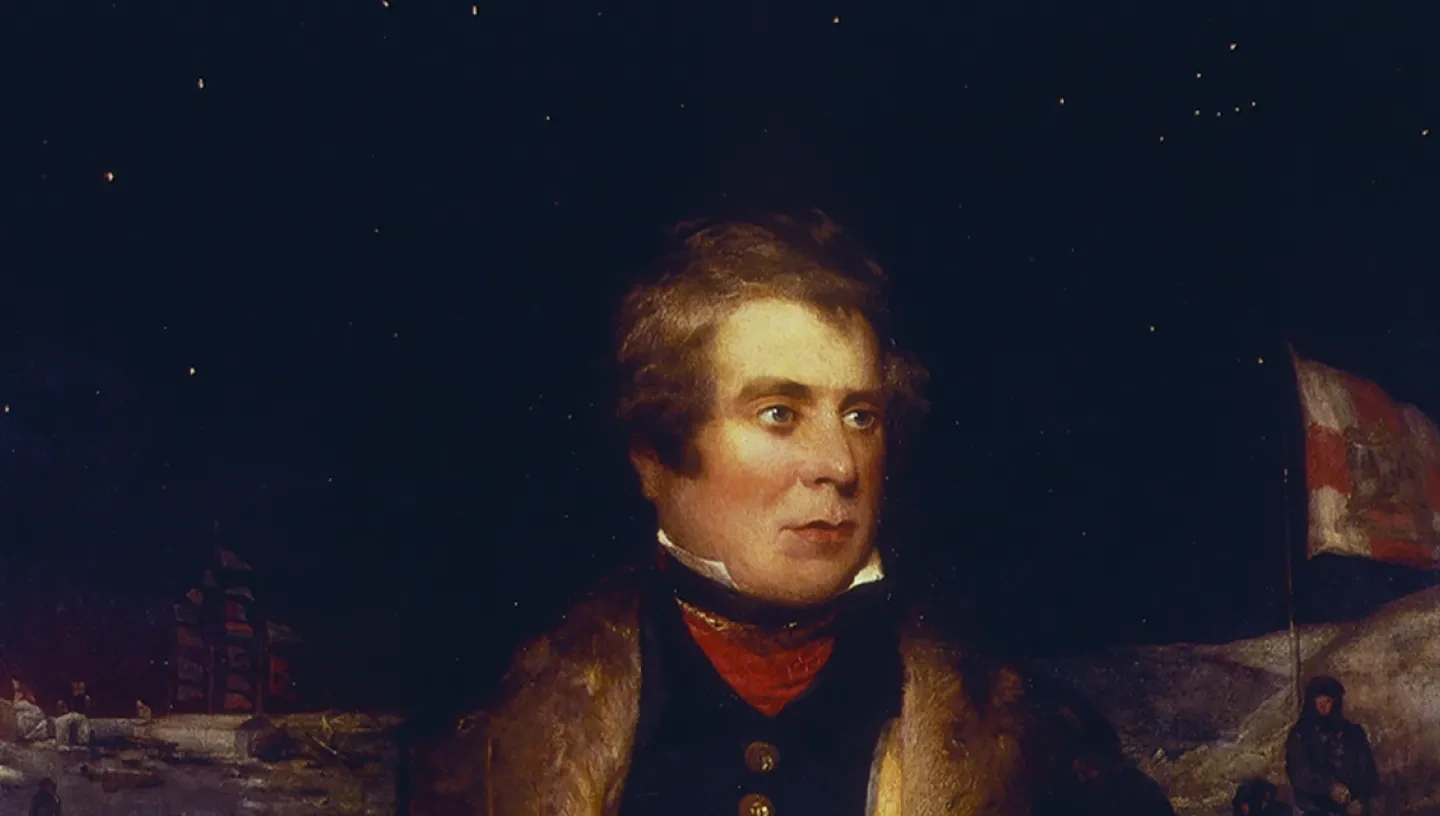
John Ross first North-West Passage expedition 1818
In 1818 John Ross was sent to search for the North-West Passage. He turned back, mistakenly believing there was no passage through Lancaster Sound.
In the 19th century the British government, under the guidance of John Barrow, Second Secretary of the Admiralty, renewed its efforts to find the North-West Passage – the seaway through the Arctic, linking the Atlantic and Pacific Oceans. Barrow had heard that whaling ships were reporting a breaking up of ice to the east of Greenland. This led to speculation that a general reduction of the Arctic ice barrier might have occurred. If this was the case perhaps shipping might yet find a passage, albeit at higher latitudes than had previously been thought navigable.
Ross's controversial voyage
In 1818, Captain John Ross took the naval ships Isabella and the Alexander, captained by William Edward Parry, under instructions to go northward through Davis Strait and Baffin Bay and attempt to find an open passage round the north-east corner of North America, and ultimately reach the Pacific through Bering Strait.
His voyage became dogged with controversy. Ross did indeed explore Baffin Bay and this included Lancaster Sound. He entered the sound but concluded it could form no part of the passage as he had seen a ridge of high mountains enclosing the inlet. He decided to turn back and head for home, avoiding a winter in the Arctic. His decision was not welcomed by some of his officers, including Parry. Alexander, being a much smaller vessel than Isabella, had fallen behind and Parry had not seen the mountains that Ross claimed to have sighted.
Challenged by his crew
Returning to England, Ross’s abandonment of Lancaster Sound, which did indeed turn out later to form part of the passage, was publicly challenged by key crew who had been on the voyage, and a war of published words was soon in circulation.
With little faith in Ross’s findings the Admiralty almost immediately sent another expedition with much the same instructions, but this time commanded by Parry.
Find out more: